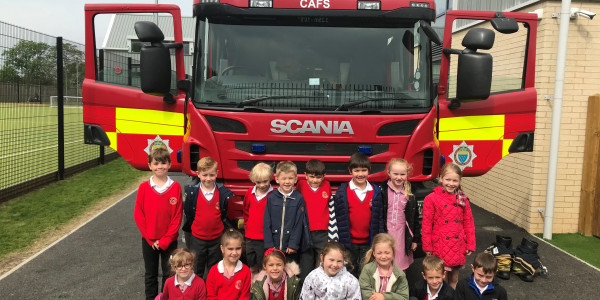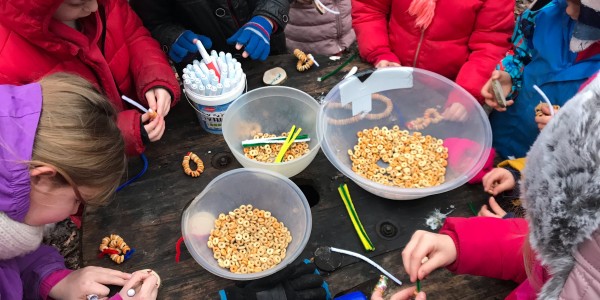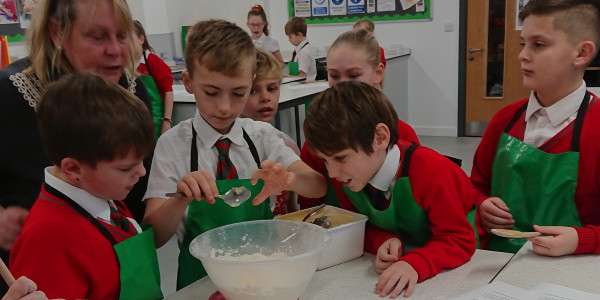


Transition from Nursery to School
Attached here is a helpful document that you can show your child in preparation for them joining CFS into Reception.
We have also put together here a Teacher Profile page all about the staff that will be working in Apple and Cherry Class. Please do show this to your child.
Curriculum
Throughout Reception, we follow the statutory framework for EYFS, supported by non-statutory guidance set out in a document called Development Matters in the Early Years Foundation Stage.
There are four themes that underpin our approach:
A Unique Child + Positive Relationships + Enabling Environments = Learning and Development
We also look for and encourage the development of the Characteristics of Effective Learning, which thread through all areas of learning and support pupils to be effective and motivated learners. They are:
• Playing and exploring - engagement
Finding out and exploring
Playing with what they know
Being willing to ‘have a go’
• Active learning - motivation
Being involved and concentrating
Keeping trying
Enjoying achieving what they set out to do
• Creating and thinking critically – thinking
Having their own ideas
Making links
Choosing ways to do things
Learning in the EYFS framework is defined into seven areas, three prime areas and four specific areas. We focus on developing the pupils’ skills in the prime areas first, and then the specific areas.
SPECIFIC AREAS
-
Literacy: reading to and with the pupils occurs all the time. We encourage enthusiasm and interest at school, and participation from home assists our teaching of pupils, turning them into readers. Writing is taught through activities such as puzzles and printing to encourage visual discrimination, playing at writing and then forming letters correctly. In Reception the pupils have short whole-class teaching sessions with shared books and other Literacy related activities.
-
Mathematics: providing the pupils with a range of opportunities to become competent in counting, sorting, matching, patterns, working with numbers, shape, space and measures and developing mathematical thinking. Staff develop pupils’ ability to talk mathematically and describe what they are doing. Pupils learn to organise their ideas and explain what they have done.
-
Understanding the World: including ‘People and Communities,’ we explore the local environment and cultures from around the world. We talk about past and present events, relive the past through role play, and find out about their own lives when they were babies. The pupils handle old artefacts and learn through stories. In ‘The World’ we discover living things and explore, investigate and solve problems. In ‘Technology’ we teach computer skills and use other technology to support our learning.
-
Expressive Arts and Design: including Art, Music, Dance, role-play and imaginative play. Pupils plan and build models safely, using different materials and methods. Pupils are provided with a secure environment in which they can take risks, use their imagination, make mistakes and be adventurous.
Learning
Our work in the Early Years Foundation Stage emphasises the value of play as the medium through which a child achieves most in the Early Years. Play motivates pupils to learn and helps them make sense of the world through direct experience. Through play, pupils can encounter all areas of the curriculum and develop their growing social skills. Through careful planning we ensure that the pupils have a wide range of challenging and stimulating experiences and play opportunities, which will excite their curiosity, interest and motivation. Planning includes outdoor play, which promotes and enables physical activities, encourages social and moral development and self-esteem and confidence, as well as providing for pupils who learn better outside and allowing pupils time to consolidate skills they have learned.
When planning for learning experiences and activities we also build in short bursts teaching sessions that ensure that all learners receive high quality inputs to develop our youngest pupils’ skills in phonics, numbers, reading and writing.
Planning for Individual Pupils’ Needs
Every week each adult in the class focuses on specific pupils. We make observations, gather evidence and work alongside them to assess their individual interests and needs. This information is shared with parents and carers on a regular basis where we compare observations and discuss next steps. Staff then plan personalised activities for the following week based on this shared information.
Partnerships with Parents
We recognise that you are your child’s most enduring educators and we aim to work alongside you, sharing information about your child, setting next steps together and providing support, ideas and guidance about how you can support their development at home.
